Oberlin Alumni Magazine
Spring 2014 Vol. 109 No. 2
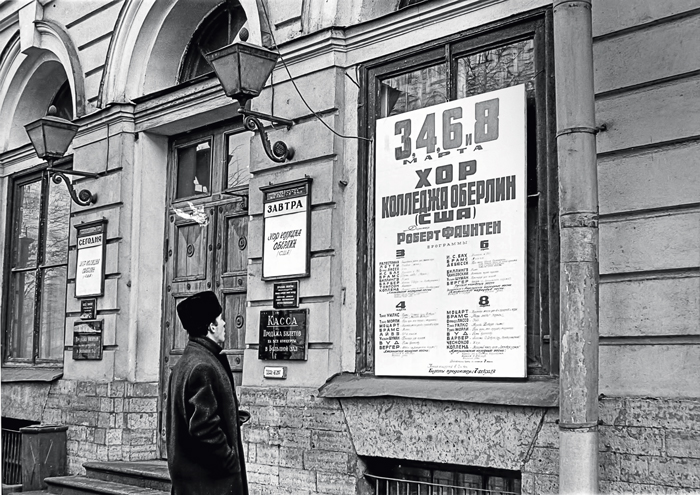
Through Russia, With Love
Fifty years ago, the Oberlin College Choir pulled back the Iron Curtain for a concert tour of the U.S.S.R.
By Erich Burnett
Jack Russell ’64 and his friends prepared four months for this moment. Four years might not have been enough.
Just three weeks after the Beatles crossed the Atlantic to change the course of music history, Russell and 74 fellow members of the Oberlin College Choir headed the opposite way en route to a date with the unknown: a two-month tour of the Soviet Union that would open March 3, 1964, in Leningrad’s Philharmonic Hall.
“We were told there would be a lot of interest because the Soviets hadn’t seen American students before,” recalls Russell, an organ major. “But I don’t think we were prepared for what awaited us: an absolutely packed hall—and 400 more people standing outside, pounding on the door to get in.”
Following that first frenzied night, the Oberlin College Choir ventured deep behind the Iron Curtain, performing 35 concerts across the frigid Soviet countryside.
And at every stop, they earned the unlikeliest of rock-star welcomes, beset at every turn by awestruck citizens hoping to connect with the Americans, to offer gifts and make star-struck conversation.
Such a trip seemed unthinkable at the time. “We had grown up in an era of air-raid drills and the Iron Curtain and the evil empire, so the thought of going there was tantalizing, to be sure,” says Russell. “But it was also just so far off anyone’s radar screen.”
That all changed one day in October 1963.
Amid the ever-present tension of the Cold War, a twinge of preposterousness hung in the air when news first circulated around campus that the U.S. Department of State had selected Oberlin’s choir, under the direction of Robert Fountain, to take part in an exclusive cultural exchange program in the Soviet Union, of all places.
Suddenly, choir members were faced with the notion of postponing imminent graduations and cramming for the adventure of a lifetime. They surrendered themselves to extended rehearsals, arranged independent studies in place of their regular classes, endured crash courses in Russian language—even memorized five complete choral programs in each of seven languages.
In the years that followed the “Russia Tour,” Russell devoted his life to teaching organ and choir. And as the 50th anniversary of the 1964 trip approached, he set about organizing a reunion—and ensuring that everyone alive and willing could be a part of it.
In November 2013, an incredible 49 of the 69 surviving choir members came together at Oberlin for a weekend celebration that included the unveiling of the Oberlin Archives exhibition Sharing Music and Friendship During the Cold War: The 1964 Soviet Union Tour of the Oberlin College Choir.
They shared memories and rekindled friendships forged a lifetime ago. And they gave thanks to the man who made it all possible: their choir director, Robert Fountain.
“Mr. Fountain used to say that when you perform in public before an audience, you are invading their souls,” says Russell. “Our trip allowed us to fully experience the reality of that happening.”
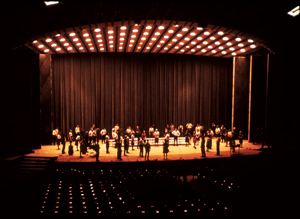
1
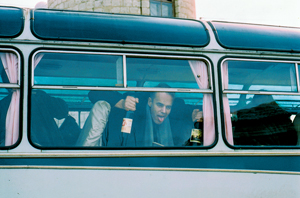
2
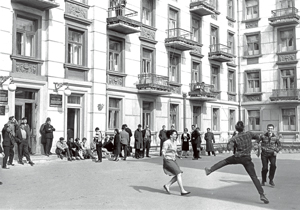
3
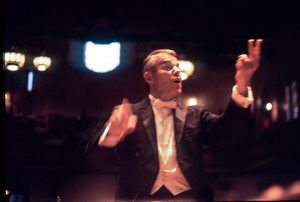
4
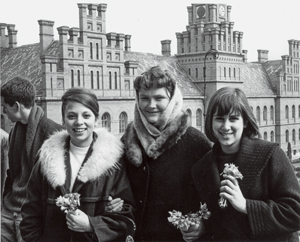
5
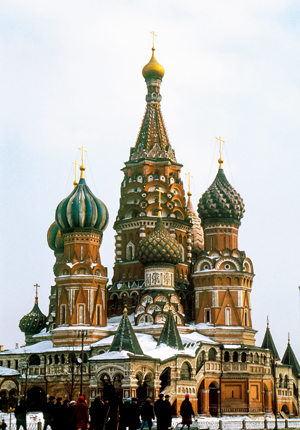
6
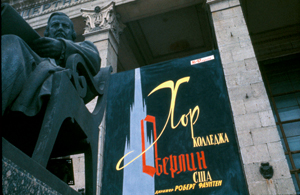
7
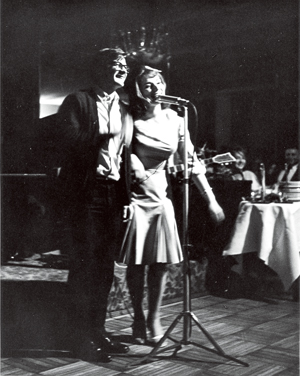
8
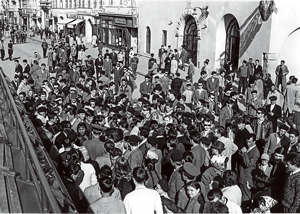
9
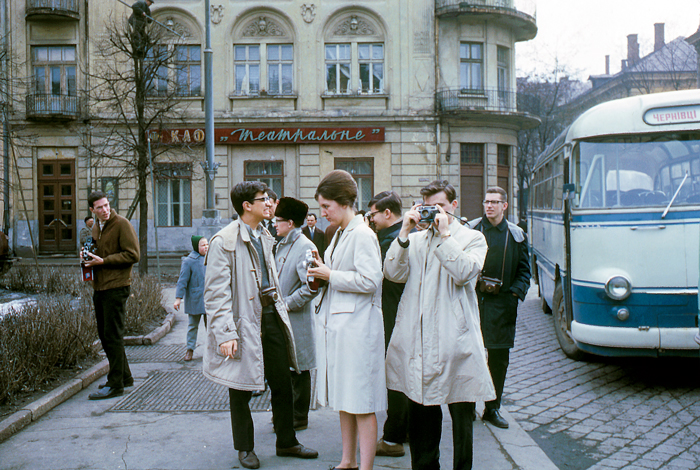
10
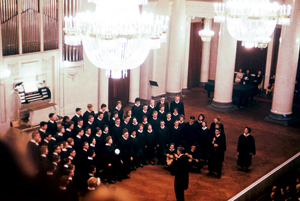
11
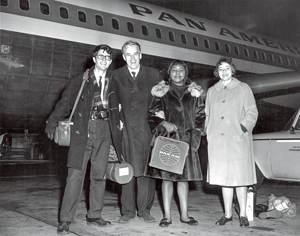
12
Photo captions:
1. The choir performed more than 35 concerts across the Soviet Bloc, including at the Romanian Communist Party congress hall in Bucharest.
2. The choir—led by the apparently enthusiastic Robert Fountain—sampled the fruits of a winery near Kishinev.
3. The choir unwound with a game of Frisbee in Kishinev. “We were under considerable pressure,” says David Swain ’64, the choir’s librarian. “And we did find ways of letting off steam.”
4. “Robert Fountain was our inspiration, our role model, and our companion throughout the tour,” says Swain.
5. At the University of Chernivtsi, Bev Medgaus ’67 (left) and Sara Levine ’67 (right) pose with Annya, a Russian interpreter (Arthur Kingdon '65 is at far left).
6. The spires of the St. Basil's Cathedral, Kremlin, blanketed in snow.
7. The choir’s final Soviet performance took place in Zaporizhia. Like most other stops on the tour, the show was well publicized.
8. Rick Sentieri ’65 joins a lounge singer onstage in Bucharest.
9. Between the structured performance schedule, spontaneous gatherings broke out, which came to be known as “sidewalk seminars.”
10. Despite the tour’s breakneck pace, the choir also spent time visiting with locals and sightseeing.
11. The choir in rehearsal.
12. Choir Director Robert Fountain (second from left), prepares to board a flight from New York at the outset of the two-month journey. With Fountain (from left) are choir members Walter Denny ‘64 and Joy Blackett ‘66, and Fountain’s wife, Clara.

Want to Respond?
Send us a letter-to-the-editor or leave a comment below. The comments section is to encourage lively discourse. Feel free to be spirited, but don't be abusive. The Oberlin Alumni Magazine reserves the right to delete posts it deems inappropriate.